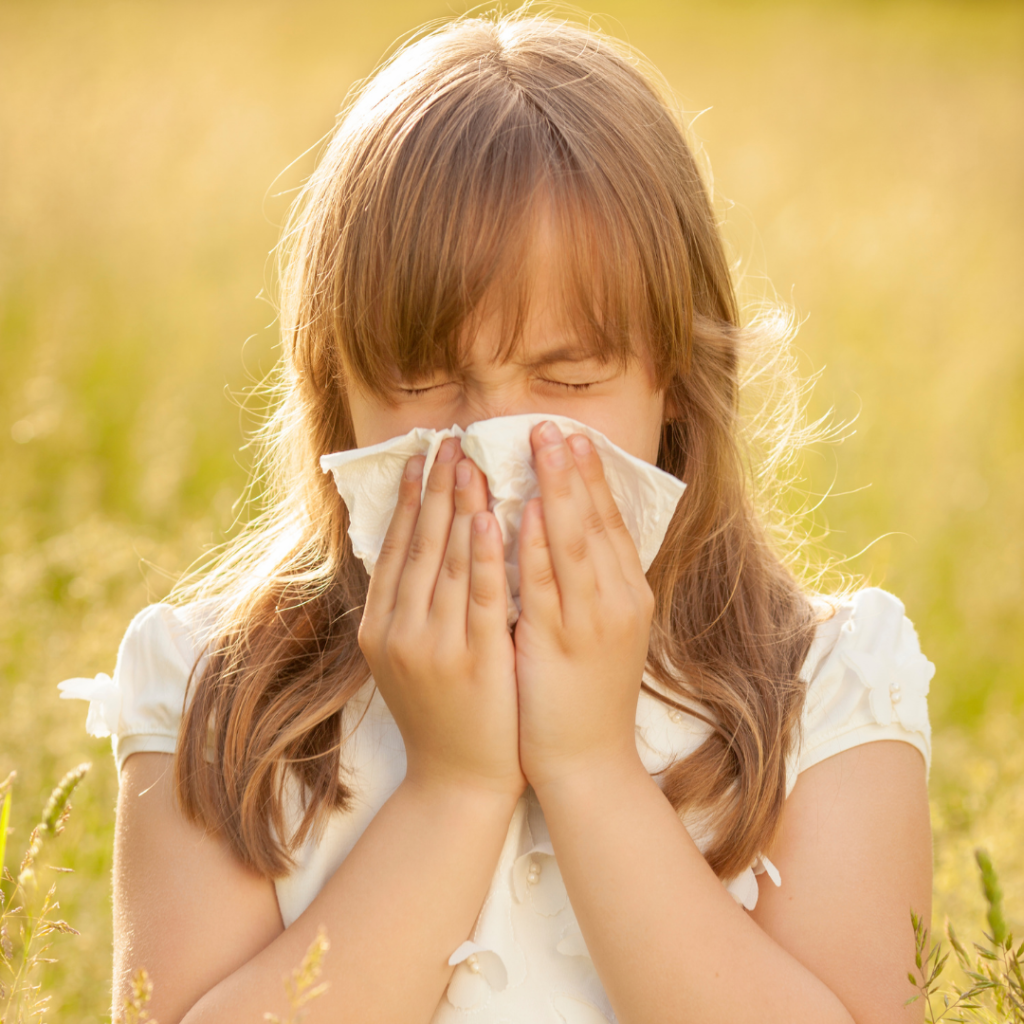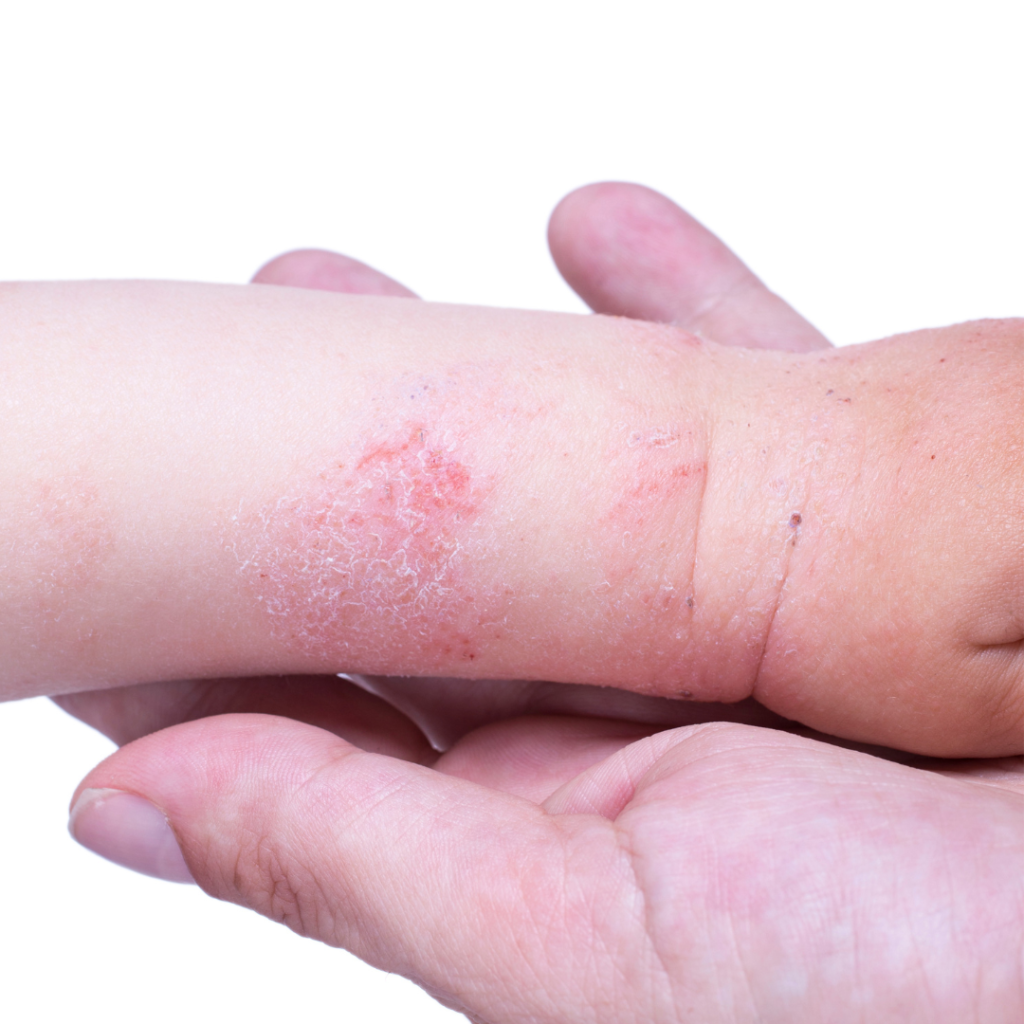
What Is Allergic Eczema?
Allergic Eczema | Causes | Environmental Eczema | Food Allergies | Types | Treatment
Eczema is a chronic skin condition that causes your skin to become red, inflamed, and itchy. Allergic eczema is an itchy skin rash caused by allergens. This type of eczema is often referred to as contact dermatitis.
When you come into contact with an allergen, your body may experience an allergic reaction. This reaction can take different forms, such as coughing, difficulty breathing, and a runny nose.
With allergic eczema, your body reacts to an allergen with a skin rash. This rash is itchy, and as soon as you start scratching it, you start an itch-scratch cycle. Scratching the rash makes it more inflamed, which in turns causes more itchiness.
What Causes Allergic Eczema?
Eczema is linked to allergies, asthma, and hay fever. These conditions are called atopic conditions. Generally, one atopic condition follows another.
For example, if your child has eczema, they may go on to develop food allergies, followed by asthma and hay fever. According to WebMD, 35% of adults with asthma had eczema when they were children.
The link between atopic conditions runs through families as well. When one or more parents have seasonal allergies, asthma, or eczema, their child is likely to have eczema as well.
When it comes to allergic eczema, its cause is direct contact with an allergen. These allergens can be in your home, outside, or even in the food you eat.
Common household items such as soaps, clothing dyes, and fragrances can trigger allergic eczema. Nickel can be a trigger as well; it is often used in jewelry and buttons on clothes.

Environmental Allergens
Allergens in the environment can cause allergic eczema. Some of these allergens are:
- Pollen
- Dust mites
- Pet dander
- Mold
- Poison ivy
As some of these allergens are seasonal, eczema and seasonal allergies often go together. Allergic eczema, therefore, has a seasonal component.
Tree pollen season, for instance, starts from mid-March and runs to mid-May. Grass and weed pollen follows this, with ragweed pollen season running until late fall.
During these times, pollen allergies can lead to allergic eczema.
Reducing your exposure to year-round environmental allergens can minimize your eczema flare ups.
For dust mites and mold, regular cleaning and low humidity can help to control these allergens.
Eczema Food Triggers
As mentioned above, if your child has eczema they are more likely to have food allergies. These food allergies can be triggers for allergic eczema. Eating, and even touching, some foods can cause your child’s eczema to flare up.
Some of the foods linked to eczema include:
- Eggs
- Nuts
- Dairy
- Soy
- Wheat
Testing your child for food allergies can help eliminate trigger foods. Food allergy tests may produce false positives, so you may have to consider a food challenge as well. Allergy tests and food challenges can help you identify allergic foods. They may also help you understand if your child is outgrowing an allergy.

Types Of Contact Dermatitis
Allergic eczema is also known as contact dermatitis. The National Eczema Association notes that there are three types of contact dermatitis that often occur.
- Allergic contact dermatitis
- Contact urticaria
- Irritant contact dermatitis
With allergic contact dermatitis, you may see a reaction between 48 to 96 hours after an exposure to an allergen. This is why it is important to monitor your child after potential exposure to an allergen.
Contact urticaria causes immediate skin redness and you can see swelling of the skin. This type of contact dermatitis can even cause breathing problems and an anaphylactic reaction.
Lastly, irritant contact dermatitis occurs upon contact with an irritant. Household products such as soaps, detergents, and cleaners can be irritants. Take a look at your household cleaners if your child experiences irritant contact dermatitis.
Allergic Eczema Treatment
Eczema is a chronic skin condition and currently there is no known cure. Treatment options include several strategies that can help you manage the symptoms of eczema. Along with existing treatments, there are several new options that can help to manage the symptoms of eczema.
Here are several tips you can follow to minimize your child’s allergic eczema.
- Avoid environmental triggers using protective clothing
- Change your child’s diet to minimize food allergies
- Moisturize your child’s skin regularly
- Keep your child’s nails trimmed
- Wash your child’s hair to remove allergens during pollen season
- Clean your child’s sheets, pillowcases, and blankets regularly
- Use household products that are unscented
- Reduce humidity in your home
- Keep notes in a journal to identify potential triggers
For severe cases of allergic eczema discuss treatment options with your doctor or healthcare practitioner. Together, you can come up with a plan that works for your child.
References:
Healthline: Allergic Eczema: Causes, Symptoms, and Diagnosis
Medical News Today: Allergic Eczema: Causes, Symptoms, and Pictures
Mayo Clinic: Atopic Dermatitis (Eczema)
WebMD: Allergies and Eczema: What’s the Link?
